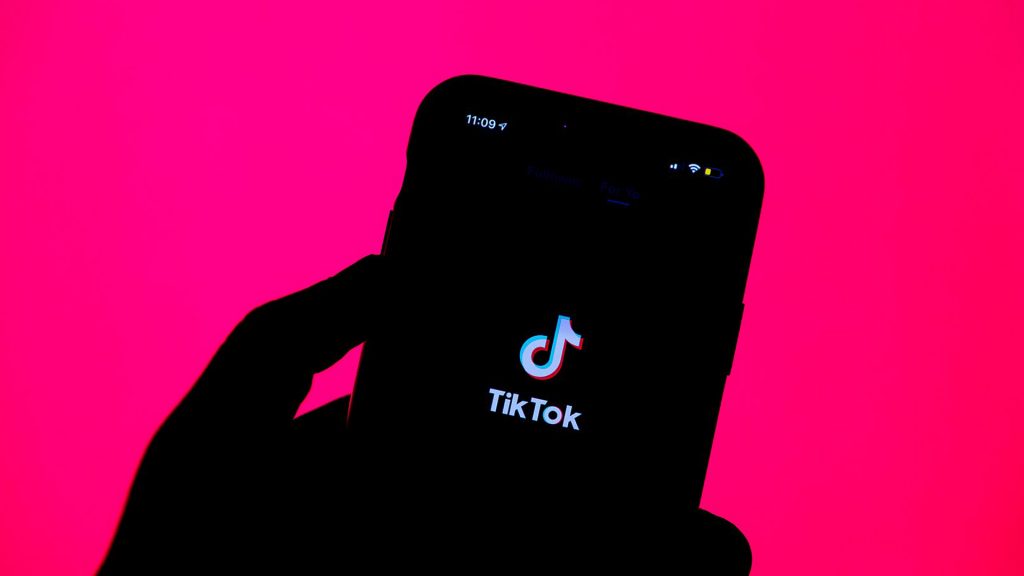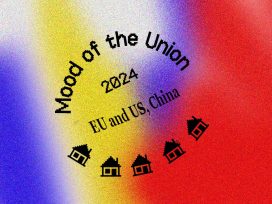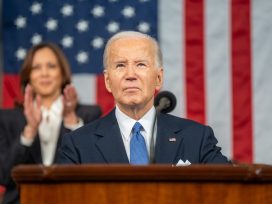In October this year, Instagram celebrated its tenth birthday – a proud old age in the digital era. The social network’s user numbers are even more impressive: more than a billion people around the world share their photos and videos on the platform. But Facebook, which bought Instagram in 2012, was in no mood to party. For some time, the digital zeitgeist has been captured not by Instagram but by its Chinese competitor TikTok.
The battle over TikTok’s future in the United States has done nothing to alter this. On 6 August, Donald Trump issued a decree banning the application from Apple’s and Google’s App Stores nationwide – unless a US company took over their business in America within 45 days.
In the ensuing negotiations between ByteDance, the Chinese company behind TikTok, and the US administration, Trump sought to present himself as a powerful dealmaker taking a tough stance against China’s desire for political and economic world power. At the end of September, he gave his blessing to an agreement that would see the US software company Oracle and the retail giant Walmart entering into a new company called TikTok Global, which would henceforth control the app’s US business.
Even before the ‘deal’ was officially sanctioned, Trump congratulated himself on delivering on his promise to bring TikTok under American control. From then on, he boasted, the app would have ‘nothing to do with China’ and that ‘the security will be 100%’. But it is unlikely that the TikTok deal will actually deliver what Trump promised. After all, the outgoing US president has not achieved any of the economic goals he set; and when it comes to the US tech sector, his protectionism threatens to do more harm than good. Not only has he attacked the idea of a free and open internet, he has also forced a digital-economic arms race between the US and China. In the event of a digital Cold War, it is far from evident that the United States would emerge as winners.
The battle for ‘the last sunny corner of the internet’
This is by no means to say that the US government’s security concerns are groundless. The Chinese authorities could use TikTok as a Trojan Horse in order to obtain data from its approximately 100 million American users and to influence their opinions. ByteDance, which likes to describe TikTok as ‘the last Sunny corner of the internet’, strongly contests this: all data belonging to US users is stored on American soil, it says. Moreover, the holding company to which TikTok belongs is based not in China but the Cayman Islands. Finally, TikTok isn’t available in the People’s Republic, only a twin app called Douyin.
However, this doesn’t rule out the possibility that the Chinese authorities could gain access to the app’s data under Chinese security law – especially since ByteDance has long been under close supervision. The company’s first app was called Neihan Duanzi, a joke-sharing platform. It was banned in China in 2018 for publishing content critical of the regime. In a public ‘letter of apology’, the company’s founder Zhang Yiming promised to ‘further deepen’ cooperation with the Chinese Communist Party.
The US government is not the only one to have concerns. India also has also designated TikTok a ‘national security risk’. At the end of June, following a border clash with China, it banned the app. Australia and the EU are also investigating whether TikTok poses a security risk or is in breach of data protection rules.
But security concerns were apparently not primarily what prompted Trump’s campaign against TikTok. Mark Zuckerberg is said to have personally asked the US president to take action against Chinese competitors in October 2019. At a private White House dinner, Zuckerberg reportedly warned that TikTok represented a much greater threat to American business than the market power of Facebook. Shortly thereafter, the US Department of Commerce began looking into ByteDance’s business; in early 2020, Trump first threatened to issue a nationwide ban on the platform.
The humiliation of Silicon Valley
Zuckerberg is clearly pursuing two objectives. First, he wants to divert the headwind blowing out of Washington away from Facebook and towards TikTok. An initial report at the beginning of October by the US Congressional Panel investigating Silicon Valley’s tech companies’ abuse of market power found that the influence of the Big Four had to be limited. The Democrats in particular have demanded that the platforms that dominate the market be broken up.
Second, Zuckerberg had obviously hoped that Trump could get a dangerous competitor off his back. TikTok poses an unprecedented threat to the business model of Facebook, Instagram et al. – and thus to Silicon Valley’ global digital-economic hegemony.
Unlike other social networks, TikTok does not depend entirely on users’ friendship networks – the ‘social graph’ – in order to determine their interests. Instead, its rapid-learning algorithm figures out individual preferences. The app only ever displays a single video, which fills the entire screen. Users then decide whether to continue watching it, or to move on to the next. The algorithm conducts a detailed evaluation of user behaviour for each short clip and is evidently able to display only those videos that correspond to the individual user’s interests.
Users don’t even need to create a user profile in order to be immediately offered suitable content. TikTok ‘never presents a list of recommendations to the user (like Netflix and YouTube), and never asks the user to explicitly express intent,’ explains tech analyst Connie Chan. The app decides for itself what to show to the user, making it the first internationally successful ‘mainstream consumer app where artificial intelligence IS the product’.
This presents the ‘classic’ social networks with an unprecedented challenge. In the past, they have copied new features from the competition. But with TikTok, this strategy doesn’t work – on the one hand, because they are too late; on the other hand, because they can only replicate the app’s functions, and not its underlying algorithm. In July, Facebook was obliged to close down its Lasso app, which worked similarly to Tik-Tok, after two years. A week later, Instagram introduced a feature called Reels, which also allows users to upload short videos. So far, it has also disappointed – as has the Shorts video format launched by YouTube in September, which Google’s subsidiary is using to court former Instagram users in India.
The new American protectionism
Because American tech companies have been so comprehensively outclassed by TikTok and cannot easily buy out the Chinese firm ByteDance, they were resting all their hopes on Trump. But the ‘deal’ presented by the US president brought no significant benefits to either the companies or the government. ByteDance continues to be a major co-owner of TikTok Global. Moreover, the much sought-after algorithm remains in its hands, after the Chinese authorities prohibited that it be shared at the end of August. This means that the US companies will have access only to the source code of the app distributed in the United States. Whether, under these conditions, they will be able to detect Chinese manipulation of TikTok’s video streams remains open.
More seriously still, the protectionism encouraged by Trump’s bellicose performance will do more harm than good to American tech companies – and also threaten the open internet. This is obvious when one looks at the real winner of the battle over TikTok: Oracle, which is set to become TikToks ‘trusted technology partner’. Oracle’s heyday was at the end of the last century, when it was a market-leader in large database systems. But Oracle missed the leap into the age of the Cloud, lagging behind competitors like Microsoft, Google and Amazon. The fact that Oracle is now participating in TikTok is down to one main factor: Oracle owner and billionaire Larry Ellison has been a generous donor to Donald Trump.
Ultimately, this is about far more than cronyism. If the state-controlled restructure of ByteDance became the norm, then every foreign company successful in the US would run the risk not only of being divided up among its US competitors.
With TikTok, Trump not only missed yet another opportunity to regulate tech companies at home, he also failed to recognise that the US can only benefit from aggressive protectionism in the short term, if at all. Facebook, Google, Apple and Microsoft depend, far more than other companies, on a world without trade barriers. Their markets would shrink considerably if each country were to promote its own online companies. The United States would lose not only its global market share and tax income, but also its huge soft power in the online sector.
An attack on the open internet
This would fundamentally change the structure of the internet itself. Despite Silicon Valley’s turbo-commercialisation, the US has always stood for a largely liberal, open internet. Now, for the first time, a US president has used the International Emergency Economic Powers Act of 1977 to demarcate America’s digital territory. The Act authorises the president to regulate international trade in the event of foreign threats. Although Trump’s predecessors have used the law against Iran, for example, this is the first time it has been evoked against a foreign company.
A court ruling on the Chinese messenger service WeChat shows that the US government is also violating its citizens’ fundamental rights. Trump also wanted to ban this app, which is used by an estimated 19 million people in the US to communicate with family and friends in China. The US WeChat Users Alliance, a non-profit group supported by several prominent Chinese-American lawyers, sued against the ban, which in their view violated freedom of expression and protection from arbitrary discrimination. ‘Public space in the digital age is defined by platforms and users and not by physical places with geo-graphical boundaries,’ they argued. A Californian court, following the Alliance’s argument, placed an interim injunction on the WeChat judgment. However, with its conservative majority, the Supreme Court could still approve Trump’s action and legally pave the way for digital protectionism.
China is upgrading
The US government would then have to be prepared for Beijing to throw up obstacles to American companies. The result could be a permanent Cold Tech War between the major powers.
According to reports, the Chinese Ministry of Commerce has already compiled an ‘unreliable entity list’. It sets out that foreign persons and companies that refuse to supply Chinese companies for political reasons will be subject to trade restrictions and sanctions. They will cease to receive regulatory approvals and licences and, in the worst cases, will have their permits to trade in China revoked entirely.
At the same time, Beijing is massively expanding its digital economy, not least in order to become more independent of the US. In May 2020, the National People’s Congress adopted a five-year plan setting out investments totalling the equivalent of $1.4 trillion nationwide. The money is to be used to develop ‘new infrastructure’, in other words artificial intelligence systems, new data centres and broadband technologies such as 5G. China also wants to reduce its dependency on production and supply chains connected to the US, particularly in semiconductor and memory storage manufacturing.
Two digital-industrial blocs are thus forming, which are increasingly opposed to and isolated from each other. It is highly unlikely that the US digital economy will be able to cope with such a confrontational form of competition. Over the past twenty years, Silicon Valley companies have gained a huge lead over the rest of the world. But the rapid success of TikTok shows how quickly this can dissolve. The dispute over the Chinese app may be the first sign that the Big Four have passed their peak. China could soon take the lead on the digital world market, thanks in part to Trump’s heavy-handed policies. This could very well be a case of out of the frying pan and into the fire, not least in terms of the privacy of our data.







